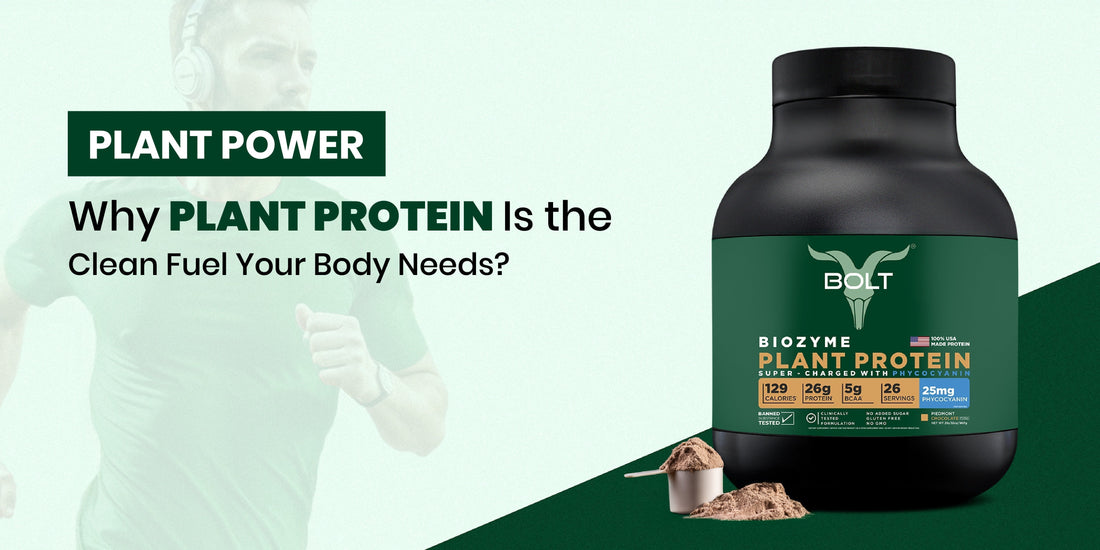
Why plant protein is the clean fuel your body needs?
byIn the world of nutrition, plant-based protein has emerged as a game-changer. As people shift towards cleaner, more sustainable diets, plant protein has taken center stage as a healthier, eco-friendlier alternative to traditional animal protein. But is it just a trend, or is there real science behind the benefits of plant-based protein?
In this blog, we’ll explore the nutritional power of plant protein, how it compares to animal protein, and why it might be the clean fuel your body has been missing.
1. What Is Plant Protein?
Plant protein is derived from plant-based sources such as peas, brown rice, soy, hemp, quinoa, lentils, and chickpeas. Unlike animal protein, which comes from meat, dairy, and eggs, plant protein contains no cholesterol and usually comes packed with fiber, antioxidants, and phytonutrients.
2. The Clean Fuel Advantage
- Low in Saturated Fat & Free of Cholesterol: Most plant proteins are naturally low in saturated fats and completely cholesterol-free, making them a heart-healthy option.
- Rich in Fiber: Plant proteins are often accompanied by dietary fiber, which aids digestion and helps keep you full longer, supporting weight management.
- Loaded with Antioxidants: These help fight inflammation, support recovery after workouts, and contribute to overall wellness.
3. Plant Protein vs. Animal Protein: The Truth
While animal protein is complete (contains all 9 essential amino acids), many plant sources are slightly incomplete. But here's the catch: by combining different plant sources (like rice and beans or pea and brown rice protein), you can easily get a complete amino acid profile.
- Digestion: Plant protein is often easier to digest, especially for people with dairy sensitivities.
- Weight Loss: Studies suggest plant-based diets can support weight loss due to higher fiber content and lower calorie density.
- Sustainability: Producing plant protein uses significantly less water, land, and energy than animal farming.
4. Top Benefits of Plant Protein
- Boosts Energy Naturally
- Supports Lean Muscle Growth
- Improves Gut Health
- Reduces Inflammation
- Supports a Sustainable Lifestyle
5. Best Sources of Plant Protein
- Pea Protein: High in BCAAs, great for muscle recovery
- Hemp Protein: Complete protein with omega-3s
- Brown Rice Protein: Easy to digest and hypoallergenic
- Soy Protein: One of the most researched and complete plant proteins
- Lentils, Chickpeas & Quinoa: Nutrient-dense whole food options
6. Who Should Choose Plant Protein?
- Fitness enthusiasts looking for clean gains
- People with lactose or dairy sensitivities
- Weight watchers focused on clean eating
- Anyone aiming for a sustainable, ethical diet
Conclusion:
Fuel Your Body the Clean Way Plant protein is more than just a trend—it's a clean, efficient, and ethical way to fuel your body. Whether you're trying to lose weight, build muscle, or simply eat healthier, switching to plant protein can make a noticeable difference in your performance, energy, and overall health.
So the next time you're reaching for a protein shake or planning your meals, think plant-based. Your body, your conscience, and the planet will thank you.









